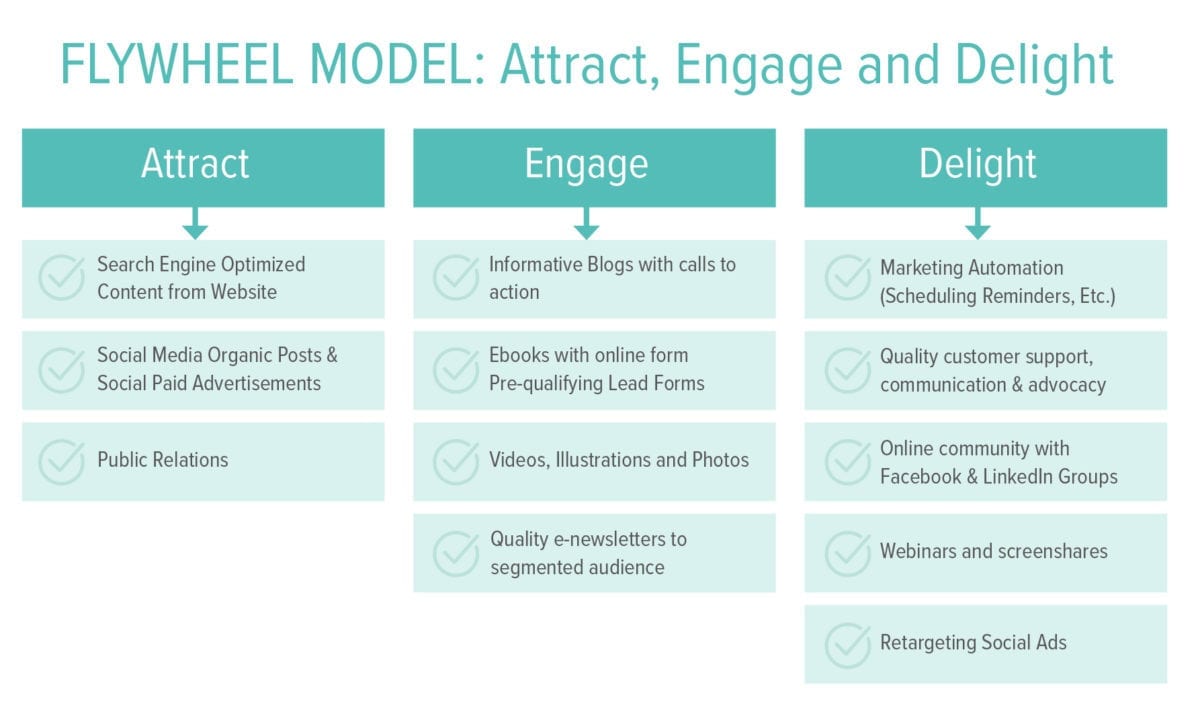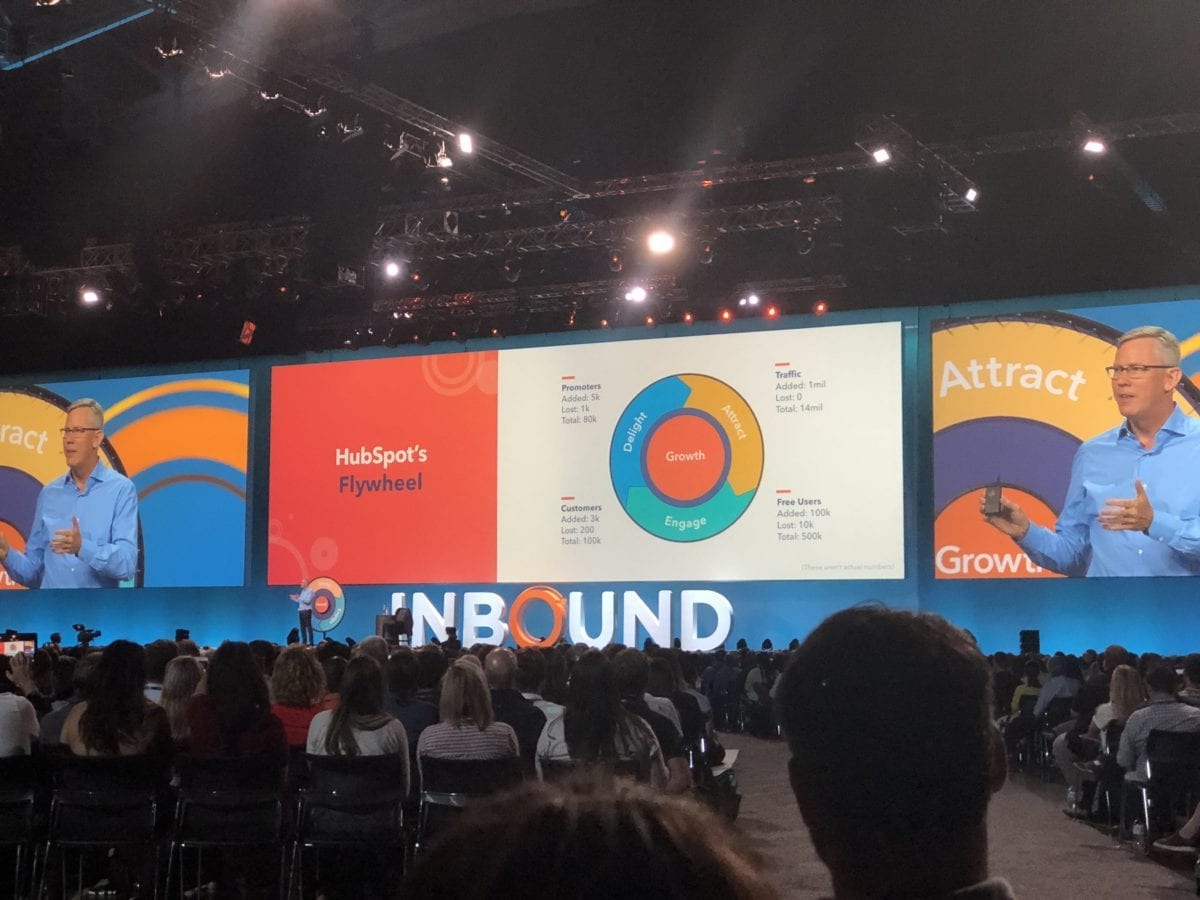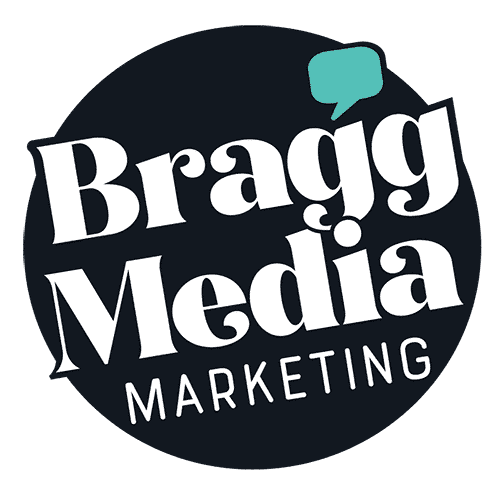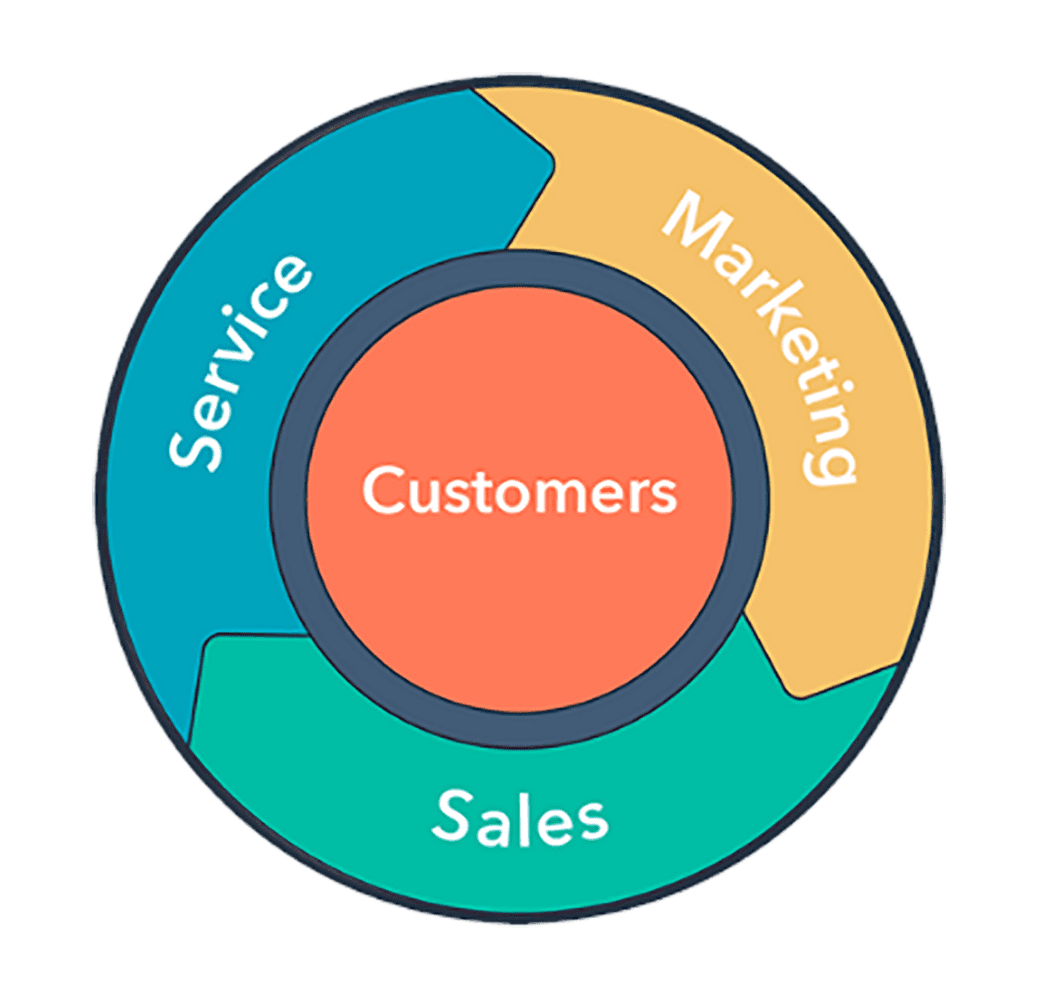Marketing software, online courses, resource center, trendsetters, a way of doing business

However, for many marketing professionals, HubSpot is more than the technology that it innovates. They offer online certification courses, ebooks and resources on how to grow your business, a well-trained sales and tech support and an annual Inbound conference that attracts thousands of attendees and such prominent keynote speakers as First Lady Michelle Obama, Martha Stewart, Ariana Huffington, Seth Godin, Jennifer Garner …
Still not sure what HubSpot is? Here’s a breakdown on how their versatile business model works.
Like what you’re reading?
Subscribe to Bragg Media’s monthly newsletter.
But, first, you can’t describe HubSpot without talking about inbound marketing
Inbound marketing is a methodology and business philosophy that draws in customers with high quality content using social media, email marketing, Search Engine Optimization (SEO), blogs, ebooks and more.
Unlike outbound marketing — which typically includes pay per click Google ads, print advertising, website pop-ups and more — inbound marketing uses organic techniques that bring customers to the business. The idea is to offer high quality, informative content that helps customers through each phase of the buyer’s journey: attract, convert, close and delight.
HubSpit has long been considered the forefathers of inbound marketing – even redefining this methodology to keep up with societal trends. Last year, HubSpot threw out the four-phase marketing and sales funnel. In its place, they introduced the flywheel model with three simple rules of business engagement: Attract, Engage, Delight.
When the flywheel is moving, your business is set to grow with healthy cash flow and happy customers. To keep the flywheel moving, the customer should always be the focal point in every aspect of your business – something like this:
- social media attracts strangers
- chat messaging converts strangers to leads
- automated emails delights new customers with discounts
- stellar customer service continues to delight customers into becoming brand ambassadors.
What exactly does that entail?
The flywheel model isn’t new. Putting the customer first is an old-fashioned notion – something the American culture temporarily lost when the information superhighway took hold.
Today, customer-centric marketing, sales and service is making a comeback. Instead of burdening the customer with your process, your process becomes fluid for your customer’s unique needs.
Confused yet?
Think of inbound marketing as the solution to those annoying, disruptive pop-up ads and spam emails that repel rather than attract your target audience. With inbound, you are creating real connections by helping people solve their problems.

HubSpot’s all-in-one marketing platform connects the dots
Perhaps best known for its free — yes, free! — Customer Relationship Management (CRM) system, HubSpot streamlines marketing, sales and customer service with a giant database that enables your entire team to work off the same system of record.
But that’s only a small part.
As a marketing platform, HubSpot is a one-stop platform for:
- blogging
- landing pages
- social media scheduling, monitoring and tracking
- content strategy
- SEO
- digital advertising
- email marketing
- marketing automation
- A/B testing
- Online Forms
- Smart content (also known as dynamic content)
As a sales tool, HubSpot offers conversational bots, live chat, an appointment scheduler that syncs with your calendar, predictive lead scoring, sales automation and more.
As a customer service tool, HubSpot offer next level support ticketing, surveys, knowledge base, automation and routing.
The best part?
HubSpot offers customized analytics dashboards. For instance, the easy-to-understand data graphs identify which top-performing social media posts have generated the most leads; which contacts have visited the website the most; which online sources have produced the most web traffic; which campaigns are the most successful.
HubSpot’s higher level services require a monthly subscription that ranges from $50 to more than $3,000. However, the software is set at a scalable price appropriate for every business. In other words, you pay for what you need, minus the extra fat.

If there’s one takeaway, remember this.
Here’s what differentiates HubSpot from other digital platforms: free resources.
Yes, you read that right.
HubSpot offers a ton of free stuff — not fluffy common sense information, but truly helpful tools that can grow your business.

Hubspot Academy courses cover a variety of topics — from the basics of inbound marketing to super-specific training, such as Instagram marketing strategy. Their courses are tied to a certification process incorporating videos, instructional blogs and testing what you’ve learned on a variety of topics, such as:
- Inbound Marketing 101
- How to get more Instagram followers
- Using Hubspot’s free marketing tools
- Video production 101: How to create effective videos for your business
Additionally, Hubspot offers a number of free online tools that anyone can use (and they’re fun, too!):
- An email signature generator that customizes colors, graphics and more
- Fully customizable infographic templates (PowerPoint + Illustrator) for presentations
- Blog ideas generator that provides more than 200 topics just by entering up to five nouns
- Email marketing kit for start-ups and entrepreneurs with templates, guides and inspiration
- Free ebooks for advertising, blogging, branding, content creation, ecommerce, event marketing, lead generation, personal branding, SEO, social media and more
- Research and data that helps your business strategy
- SSL tracker will tell you if your website is secure
- Marketing plan generator outlines annual marketing strategy
- Email templates for startups
#AllTheFreeThings
The bottom line: HubSpot seems like an expense but it’s actually an investment in your business. Their automation lifts administrative burden. Their technology is always on the cutting edge. Their customer and tech support exemplify how true professionals conduct themselves in business.


 Website Design
Website Design